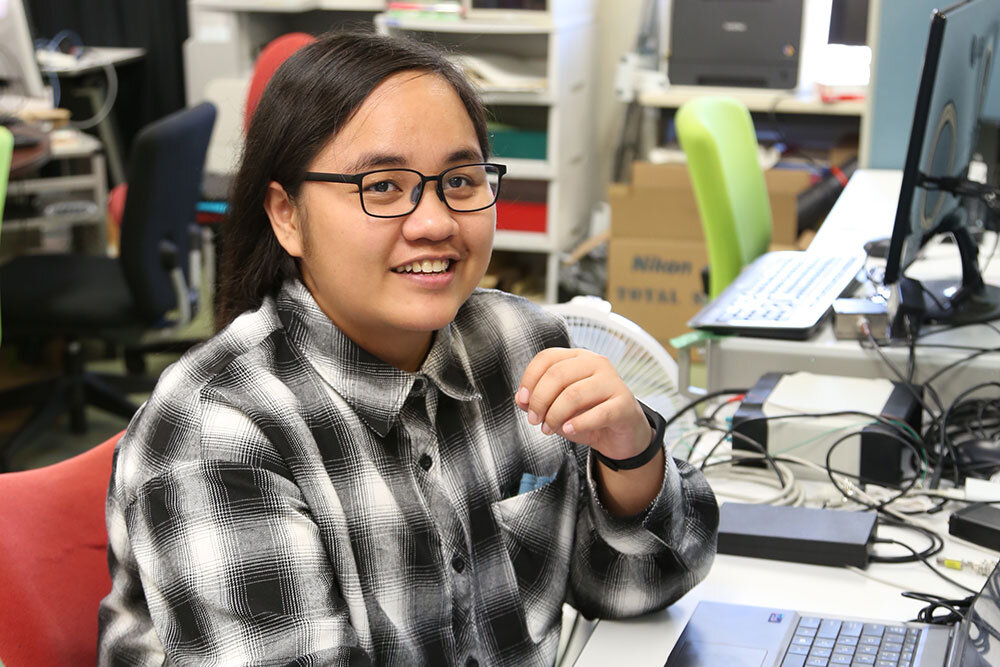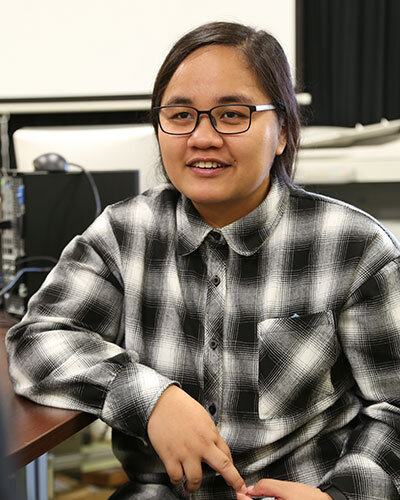INTRODUCTION学生紹介
- HOME
- support
- Student Introduction
- FREDELUCES ELLARIZZA TISADO
STUDENT INTRODUCTION
Maritime Technology and Logistics
FREDELUCES ELLARIZZA TISADO
Specializations:Marine Technology
Main academic advisor:KUBO, Nobuaki
Mentor:TAKENAWA, Tomoyuki / FUKUDA, Gen

I want to contribute to the Philippines’ development through the AI knowledge and GNSS research I have pursued in Japan
Coming to Japan from the Philippines in search of an opportunity to learn about GNSS technology
Coming to Japan from the Philippines in search of an opportunity to learn about GNSS technology
After studying surveying at a university in the Philippines, I entered the Graduate School of Marine Science and Technology in April 2023, also joining the WISE Program (Doctoral Program for World-leading Innovative & Smart Education).
At the Graduate School and under the WISE Program, I am conducting research into such satellite-related navigation systems as GNSS. Although research in this area is rare in the Philippines, I learned that I could pursue this research in Japan, which motivated my decision to study here. I would also like to learn more about AI under the WISE Program and utilize this in my GNSS research.
I carry out research at the university laboratory every day from 9 am to 5 pm, then use online sources to study AI at home in the evening.
Creating opportunities to spread GNSS research in the Philippines
The aim of my research is to improve GNSS accuracy and reliability across all areas: ocean, land and air. GNSS technology has the potential to help people, yet in the Philippines, very few undertake research in this field. I hope that my research helps to make learning and research on GNSS technology more widespread in the Philippines.
While some GNSS services are currently available in the Philippines, I hope to improve them and make them more accurate.
The unusual combination of GNSS and AI makes this research significant
 I first found out about the WISE Program from my academic advisor. My decision to join the program was motivated by the economic aid it provides and my interest in AI.
I first found out about the WISE Program from my academic advisor. My decision to join the program was motivated by the economic aid it provides and my interest in AI.
I only began studying AI after arriving in Japan. This seemed like a difficult task at first, but the WISE Program provides a large range of free online programs and easy-to-understand learning materials that help me understand the topic.
GNSS technology uses very dated mathematical models, so it is unusual to combine it with AI. For this reason I feel that my combination of AI and GNSS technology makes this research significant. It's fascinating to be able to solve problems using AI.
Looking forward to the WISE Program internship
I'm very thankful for the opportunity to learn about AI. Another benefit of the program is the system of internships provided through its links with industry. Through my internship, I expect to learn how AI is actually put to practical use. I am planning to submit internship application at Furuno Electric Co., Ltd. This company manufactures receivers, so I expect it should be able to engage in operations combining GNSS technology and AI. The WISE Program is really interesting, and I would like to see more students participate.
Surveying using compact instruments equipped with GNSS technology
In the future, I would like to take the knowledge I have gained in Japan back to the Philippines and continue my research there, in my own university laboratory. I hope to improve GNSS services in the Philippines, although I don't have any concrete ideas as yet. However, from my experience learning surveying, I think it would be good to use GNSS in more compact surveying instruments than the bulky equipment currently in use, thereby helping the development of surveying in the Philippines. Looking ahead, I hope to keep pursuing GNSS-related research.

